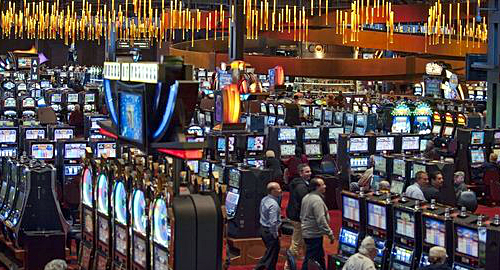 Casino gambling’s arrival in Pennsylvania a decade ago failed to produce the predicted surge in problem gambling behavior, according to a local nonprofit group.
Casino gambling’s arrival in Pennsylvania a decade ago failed to produce the predicted surge in problem gambling behavior, according to a local nonprofit group.
Last week, the Council on Compulsive Gambling of Pennsylvania (CCGP) held its annual conference in Pittsburgh, at which the group presented statistics showing that the number of gambling addicts attending Gamblers Anonymous meetings is down from what it was 10 years ago, before the state authorized casino gambling.
What’s more, the volume of calls to state-run gambling addiction hotlines declined last year from the number of calls in 2015. And while about 1,500 individuals add their name each year to the Pennsylvania Gaming Control Board’s self-exclusion list, the pace of this growth has been steady rather than dramatic.
Elizabeth Lanza, the Board’s director of compulsive and problem gambling, told the Pittsburgh Post-Gazette that gambling addiction is “a huge, enormous problem for a very small percentage of people.”
Lanza’s observation is borne out by studies in multiple jurisdictions that have consistently shown that rates of pathological gamblers are generally in the 1% range, while those in the broader category of problem gambler – who experience impacts deemed to be low to moderate in severity – are usually only two or three percentage points higher.
As for why Pennsylvania’s problem gambling rate is relatively unchanged after a decade, studies in other gambling hotspots have shown that the introduction of expanded gambling options into a jurisdiction is generally accompanied by a rise in gambling activity, but this rise is then followed by an inevitable decline, which some researchers attribute to a phenomenon known as ‘adaptability,’ i.e. most people get bored with it and find some other way to spend their time and money.
To be sure, those individuals unfortunate enough to be born with the structural brain differences associated with problem gambling activity deserve all the assistance they can get from industry-funded support groups. But Pennsylvania’s real world experience is worth remembering the next time some anti-gambling campaign makes wild doomsday predictions to block gambling expansion proposals.